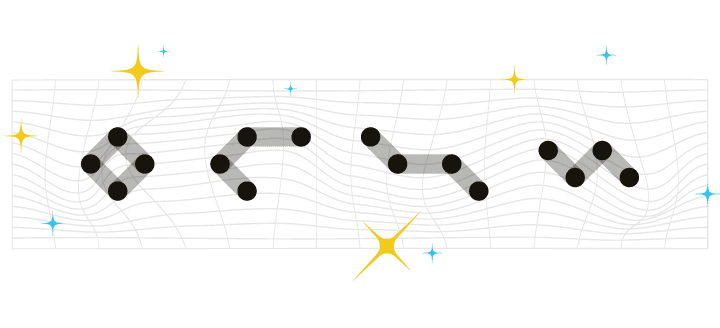It’s part two of our four-part blog series on our latest study with Wakefield Research and Ad Age. Last week, we revealed what marketers really think about generative AI, but GenAI is only one subset of an entire umbrella of AI technologies.
So in this installment, we’re diving deeper into the bread and butter of most AI marketing: campaign automation and optimization.
Want to binge all the AI insights? Head to Ad Age now to download the full study.
What’s the Difference Between AI Automation and Optimization?
Automation and optimization are core components of all modern marketing campaigns, but when it comes to how they’re connected to AI specifically, the research denoted key differences.
Automation was defined as using machines automatically to do tasks without intervention. As Ad Age explains in the study, “AI-driven automation features can help marketers strengthen customer relationships, improve brand performance, and meet their KPIs in today’s fast-moving marketplace.”
Optimization, on the other hand, was defined as automatically recommending improvements. Ad Age differentiates the two by stating, “AI-powered optimization occurs both inside and outside of automation. AI is now a standard practice in automation platforms as a means to optimize send times and frequency for email campaigns and in-app or web push notifications.”
Put another way, automation is invoked when you send a triggered message, but with AI optimization you can trigger the message to send via the channel a customer uses most often or at the time they’re most likely to engage. Both are necessary to ensure the success of any marketing campaign.
What Marketers Think About AI Automation and Optimization
The data proves AI automation and optimization are indeed standard practices. When asked, “Which type of AI would make your jobs easier?,” 57% of the 1,200 marketers surveyed selected optimization, and 53% selected automation. Although marketers could select more than one subset, these two were the top-ranked options.
When it comes to AI making marketers’ jobs easier, Adriana Gil Miner, CMO at Iterable, has heard this feedback firsthand:
“Marketers are telling us: I do not want to set up campaigns anymore. I do not want to crunch data or take a half-day to set up a three-stage welcome program. They’re saying, automate all of that for me, and surface the insights and recommendations to give me the option of making human decisions.”
And, given that 62% of marketers currently use AI both for their job and outside their job, it’s clear they’re looking to AI technologies to simplify and streamline both their professional and personal lives.
Marketing Advantages of AI Automation and Optimization
If there was one word that sums up the advantage marketers have with AI automation and optimization, it would be efficiency. Ad Age states in the report, “AI is now widely acknowledged as an essential driver of marketing efficiency and brand performance.”
In fact, nearly half (47%) of marketers are drawn to AI specifically because it will help them work more efficiently. As for the other advantages:
- 49% believe AI should increase business metrics and reflect better on their job performance
- 45% believe AI will increase their skills and make their work more accurate
- 37% see AI as becoming an integral part of their overall skill set as a marketer


Ashley Kramer, chief marketing and strategy officer at GitLab, agrees these insights reflect what she’s observing on her own team:
“This report finds that marketers increasingly view AI not as a threat but as an enhancer […] AI can drive tremendous efficiencies throughout all organizations.”
AI-driven optimization and automation impact a marketer’s ability to increase their skills and improve their business metrics by streamlining their routine tasks and unlocking their capacity for creativity and innovation. When you no longer have to stress about the logistics of building a campaign or maximizing engagement rates, you’re free to dream up bigger and better ways to strengthen customer loyalty.
After identifying why today’s marketers are using AI to automate and optimize their campaigns, the next question, of course, is how they’re actually putting it into practice.
Spoiler alert: they’re using AI-powered platforms like Iterable.
Automation and Optimization with Iterable AI
As defined above, AI automation and optimization are all about letting technology tackle your routine tasks and improving performance over time. While any modern marketing platform worth its salt should already be leveraging AI as part of its toolset. Iterable goes beyond the basics to making every campaign a piece of cake.
Optimization has been at the core of the Iterable platform from the beginning, and its AI suite offers three features every marketer needs:
- Send time optimization
- Channel optimization
- Frequency optimization


Over the past decade, marketers have become so sophisticated that sending mass emails at nine o’clock on Tuesday mornings has been rendered obsolete. Now the popular mantra of sending “the right message to the right person at the right time” can be completely automated.
Iterable AI analyzes when, where, and how often a customer is most likely to engage with your brand, so you can let it decide and save your brainpower for developing creative and innovative campaigns.
And once those campaigns are complete, you can use Iterable’s Next Best Action to automatically identify how to maximize future engagement. Next Best Action uses AI to analyze the end-to-end logistics of your campaigns and suggest new audience segments and content recommendations to improve performance. It’s like having your own personal guide to point your marketing strategy in the right direction.
You can learn about all of the features in Iterable’s AI Suite and download the full Ad Age report for even more insights about AI-powered automation and optimization. Stay tuned—we’ll cover AI explainability and predictive goals next.
Ready to take the next step on your AI marketing journey? Reach out and schedule a custom demo of Iterable AI today.

































